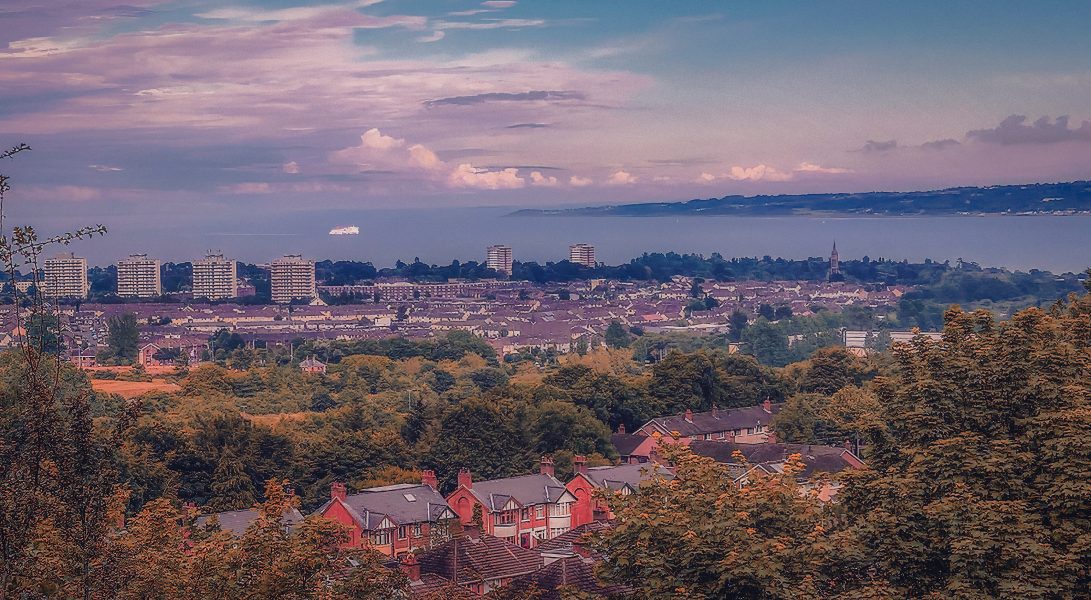
Preparing for an energy shortage with David Surplus OBE: why we have to adapt to using less energy (2/2)
15/04/2020
In Part Two of our feature with David Surplus, we discuss his recent appointment as a Climate Commissioner as part of the newly formed green initiative group in Belfast, what needs to happen in Northern Ireland in order to successfully decarbonise, and why we may need to prepare for an energy shortage.
Q1 You’ve recently been appointed as a Climate Commissioner as part of the establishment of the Belfast Climate Commission. Its development is to give a new impetus to the city’s energy transition. Could you tell me a little bit about it and your role?
The Climate Commission came as a follow on from PCAN, the ‘Place-based Climate Action Network’. This is a working alliance between the cities of Leeds, Edinburgh and Belfast where best practice and ideas are shared as part of a team rather than acting individually. Leeds was the first city in the UK to set up its Climate Commission, and now Belfast is the second. My role at the Belfast Climate Commission is to help raise awareness, harness people power, look at community initiatives, communicate with trade unions, and figure out how we will finance the climate adjustments needed in the city. Mark Carney, the outgoing governor of the Bank of England, stated last year that the investment world needs to divest from oil, coal and gas companies to the tune of $22 trillion and reinvest the money into renewable energies and the corresponding technology that goes with it. It seems likely that some of that money could be harnessed into innovative new funds which are set up for this purpose, so how we invest that money into Belfast and Northern Ireland generally is one of the key tasks. It is Pension Funds money that we are looking to reinvest. So, on an individual basis, everybody in NI who is an investor and has a portfolio of shares will have to make their own decision as to whether they want to continue to fund the carbon fuel industry and whether they want to place their money at risk when other people sell their shares. As an individual, I have now sold all of my shares in oil, coal and gas companies and I will be reinvesting that into more ethical funds including energy storage and renewable energy.
Q2. At the recent William J Clinton Leadership Lecture, Mr Barnier stated that Brexit will ‘prove a critical time for the NI economy’. Given the latest discussions within the Belfast Climate Commission about financing the transition towards a resilient Belfast, do you envision that our EU withdrawal will hinder NI’s financial ability to fundamentally change how our energy system works?
I don’t think it will, because finance is international these days and the shift of money out of carbon fuels and into renewables is going to be a global shift. If you look at the proportions of these transactions, a lot of it will be completed in London, so I don’t think the fact we’ve exited the EU will change anything. Furthermore, the amount of money that will become available in these markets is huge and I don’t think Belfast will need much of that to do what it needs to do. Overall, the money will become available through loans or third parties that will do the investing on your behalf. So, if you need to upgrade your home by putting solar panels on your roof or installing batteries or heat pumps, then there will be companies that will step in, upgrade your home, continue to own the technology and sell you the energy, a concept that exists today anyway.
One area that is likely to be state-sponsored in the area of energy efficiency. It is pointless trying to decarbonise when we are already wasting so much energy, as our housing stock is badly insulated. There were schemes 30 years ago for insulating houses, but have we got our housing stock to a place where it is as good as Sweden’s for example? No. So, despite our best efforts we have failed to do what we needed to do back then. Now under the umbrella of an emergency with only ten years left to do something, are we likely to insulate all the buildings cost-effectively? It’s a very big ask. The training and employment of people is another barrier to getting this done. So, I think its something that the state will undertake because private companies wouldn’t see the returns in funding that work.
Q3. Finally, looking forward, what do you think needs to be done to effectively prepare and ultimately execute the energy transition in Northern Ireland?
The most important thing that needs to be done, is to educate and prepare everyone for a shortage of energy. This is something that has not been talked about. The thought that the amount of energy that we consume today will continue, but simply change from being fossil sourced to being renewable is not accurate. If we had started decarbonisation 30 years ago, we would have completed it by now, and we would not have noticed the changes. But we didn’t, and now as we helter-skelter towards not being able to stay below 2 degrees, we will likely be forced to decarbonise within ten years. However, ten years is simply not enough time to build enough renewables to have the same amount of energy available. If you look at the primary energy we consume today and you take away the fossil fuels, we are losing 80%, and are left with only 20% of the energy we consume today, i.e. from renewables and nuclear. That is such a small amount compared to what we are used to, and people have no concept of that.
We will have to adapt to using less energy. Flying, for example, will probably go back to what it used to be in the 1960s when only the super-rich could do it. Today, many people are flying multiple times a year, and that unsustainable. There also won’t be enough energy for us to drive cars to the same extent, even if they are all-electric. We will have to travel on buses, walk, cycle and use electric scooters, and the good thing is that the roads will be clear of cars so it will be safe to do so, and the air will be cleaner so it will be pleasant to do so. People should look forward to this type of future and enjoy making it happen because if we don’t act, the future is bleak.
Ultimately, an energy shortage during and immediately after the transition is inevitable and the message that we simply have to use less energy needs to get out there because it is going to be such a shock otherwise. It is always hard to take a toy away from a child, but if you have another better toy ready to give them as a replacement then tears can be avoided.
Did you miss Part One of our interview with David Surplus? Check it out here:

